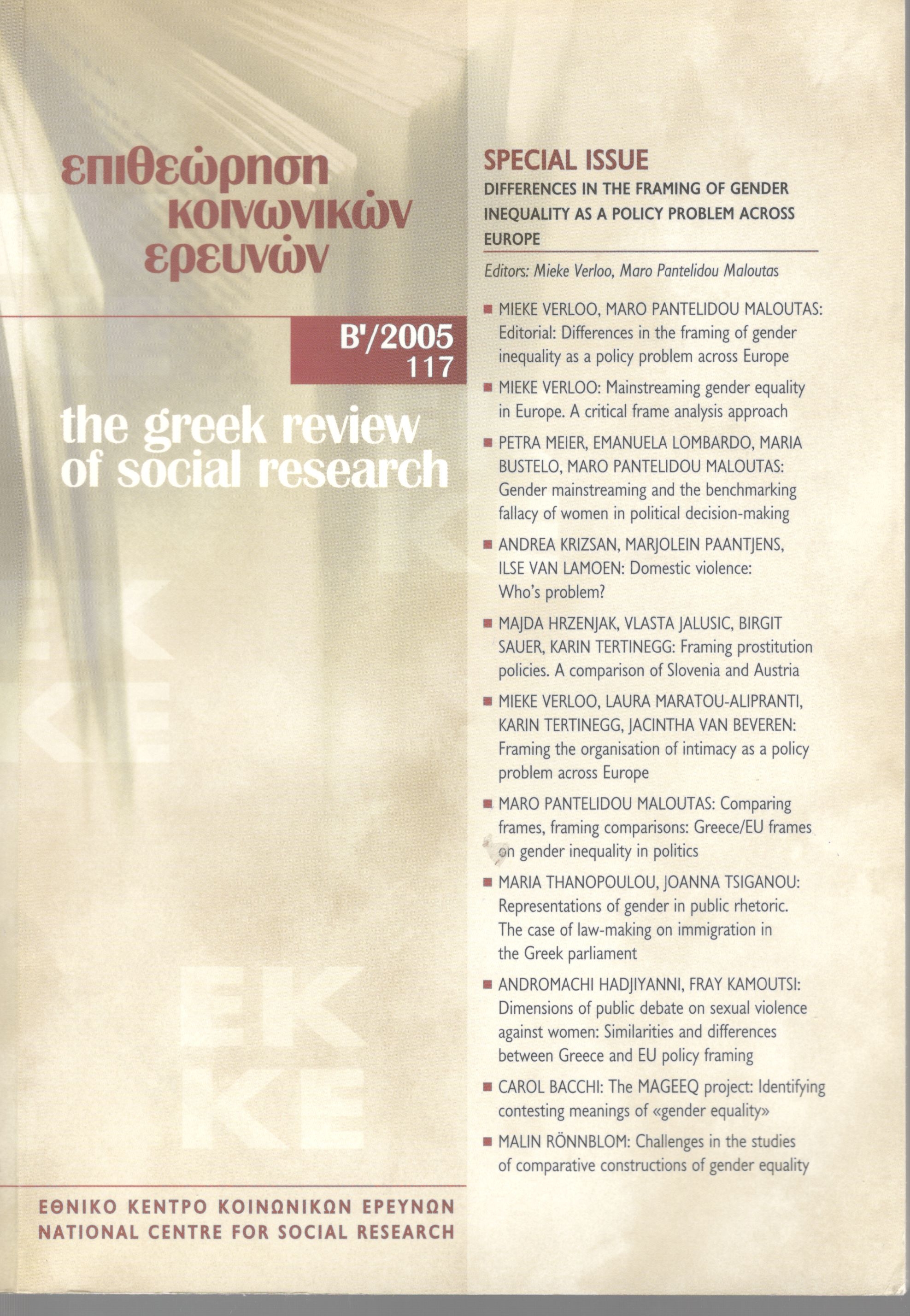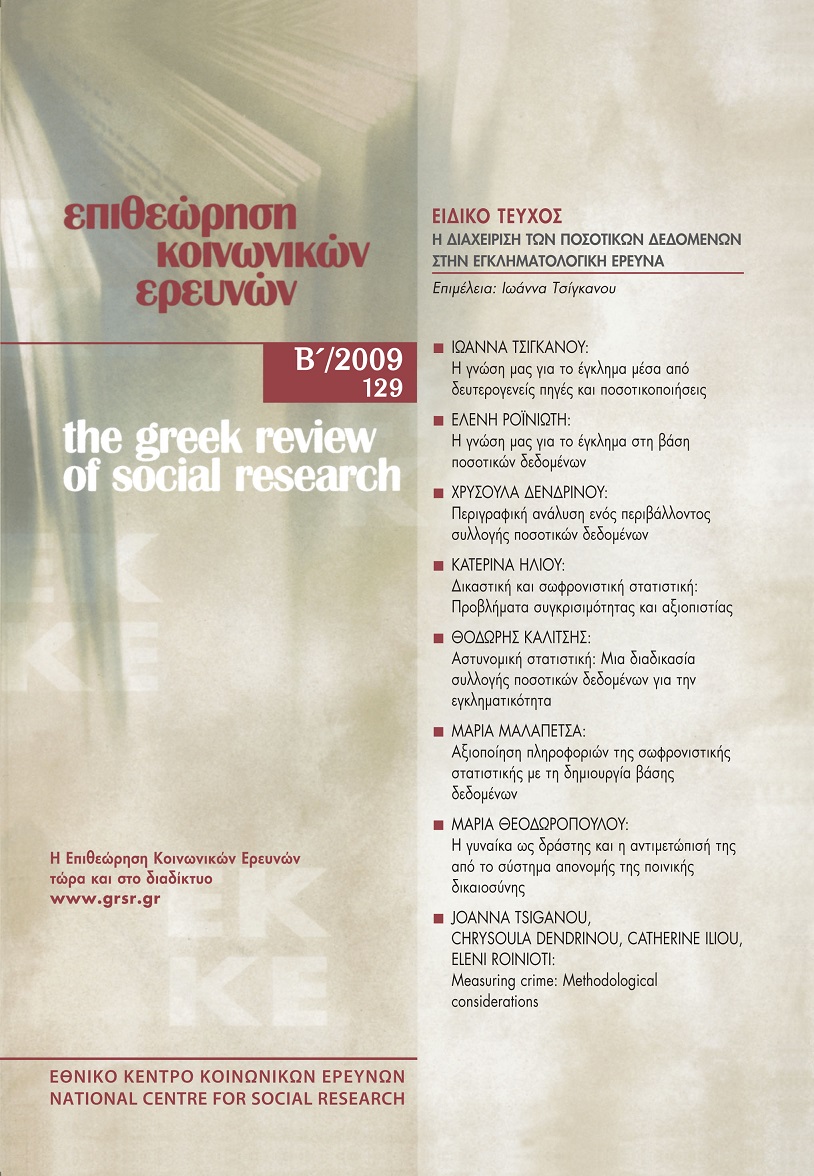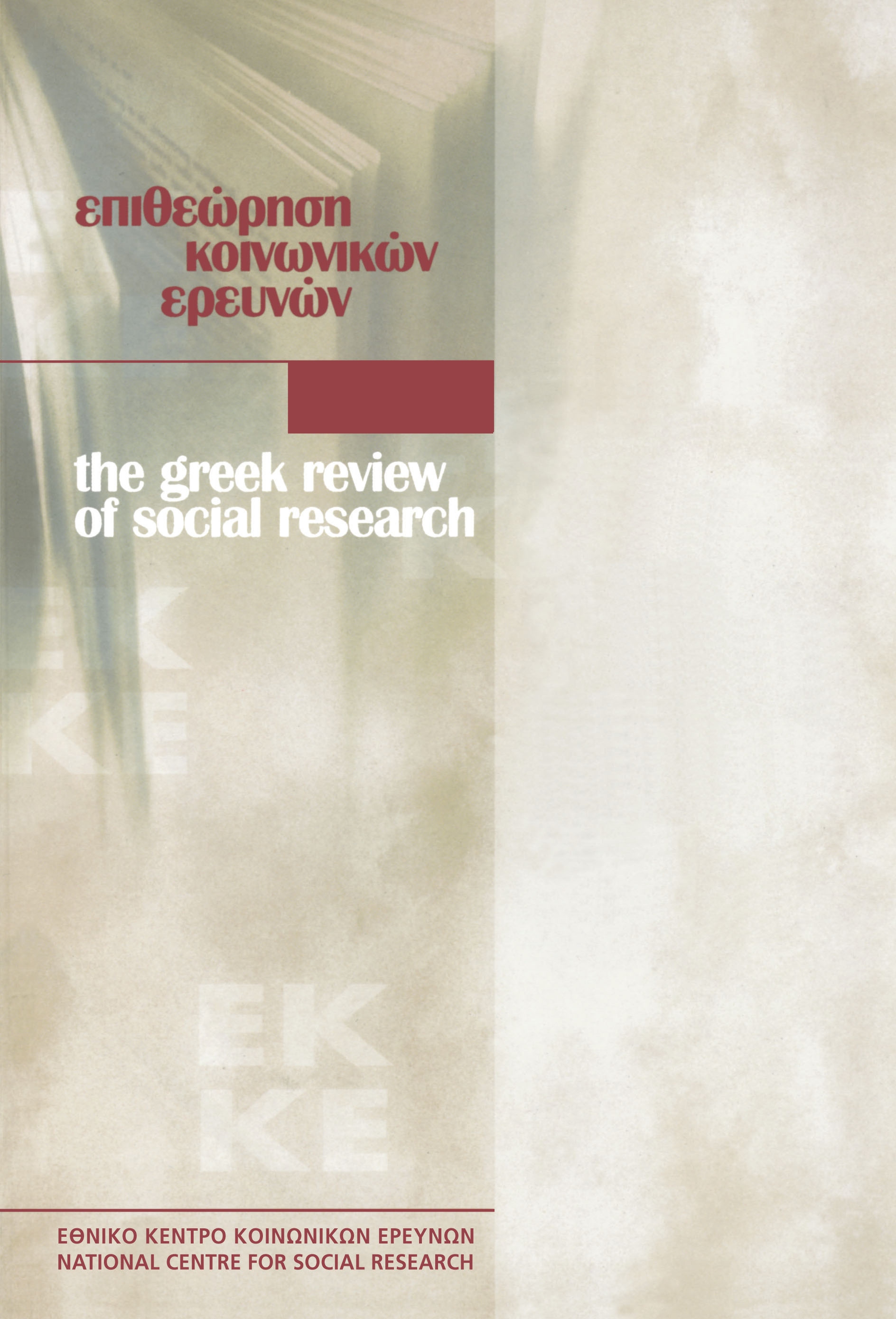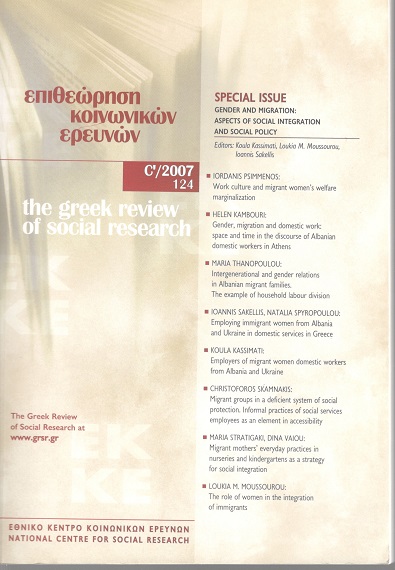Representations of gender in public rhetoric. The case of law-making on immigration in the Greek parliament
Abstract
This article intends to investigate the way in which gender stereotypes, even when latent, are so potent that manage to emerge, leaving their gender inscription on social issues publicly debated in neutral terms. Even in cases of competing political actors representing different fragments of the political spectrum, these stereotypes are actually reproduced identically. They frame in the same way the public speech of politicians regardless of their gender. These arguments are evidenced in the case of law-making on immigration in Greece through the examination of the relevant parliamentary debates. In fact, the analysis of the debate on a single legal provision concerning the issuing of work permits to foreign artists is proven more than adequate for understanding the ways in which social representations on gender are implicated in public rhetoric.
Article Details
- How to Cite
-
Thanopoulou, M., & Tsiganou, J. (2016). Representations of gender in public rhetoric. The case of law-making on immigration in the Greek parliament. The Greek Review of Social Research, 117, 169–187. https://doi.org/10.12681/grsr.9562
- Section
- Articles

This work is licensed under a Creative Commons Attribution-NonCommercial 4.0 International License.
Authors who publish with this journal agree to the following terms:
- Authors retain copyright and grant the journal right of first publication with the work simultaneously licensed under a Creative Commons Attribution Non-Commercial License that allows others to share the work with an acknowledgement of the work's authorship and initial publication in this journal.
- Authors are able to enter into separate, additional contractual arrangements for the non-exclusive distribution of the journal's published version of the work (e.g. post it to an institutional repository or publish it in a book), with an acknowledgement of its initial publication in this journal.
- Authors are permitted and encouraged to post their work online (preferably in institutional repositories or on their website) prior to and during the submission process, as it can lead to productive exchanges, as well as earlier and greater citation of published work (See The Effect of Open Access).






